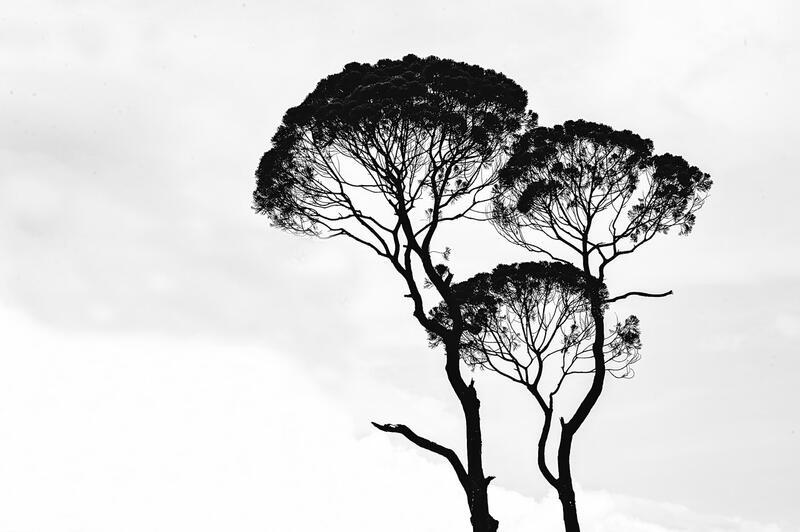Tu B'Shevat in The Age of Ecofeminism
In recent years, an overlooked Jewish holiday called the “new year of the trees,” or Tu B’Shevat, has become newly relevant and more often observed. The most common celebration on this day consists of a seder during which various tree fruits and wine are blessed and eaten. Observers also emphasize the need to protect these trees and the Earth in general.
As a mikveh guide and educator, I am not unfamiliar with making connections between my sacred work at the Adas Israel Community Mikvah and environmental justice. I honor the sacred mayyim hayyim, living waters, that we ritually immerse in both inside and outside of the mikveh.
I am also an ecofeminist, someone who understands the connections between women’s liberation and climate justice; I am called to protect so much more than water. And this Tu B’Shevat, these are some of the ways I am commemorating the holiday:
Immersing in the mikveh
It would be remiss of me not to discuss the spiritual powers of the mikveh, especially in relation to climate change. As I’ve written previously for JWA, there is a strong connection between my work as a mikveh educator and guide and the fight for water justice.
Though news of the crisis broke in 2014, Flint, Michigan still doesn’t have clean water. Thousands upon thousands of residents are unable to access water that is safe enough to drink, bathe in, or cook with. It has taken until 2020 for the Supreme Court to say that residents of Flint can sue over the horrific conditions they’re forced to live in. So when I immerse myself in the mikveh for Tu B’Shevat this year, I will pray for the residents of Flint to have the strength to keep fighting.
It is essential to note that Flint is not an outlier when it comes to undrinkable water. Washington, DC, where I live, also has dangerously high levels of lead in the water, most notably in Wards 7 and 8, the poorest neighborhoods in the city. Many cities in the US have similar trends and up to 6.1 million families have homes with lead pipes.
Praying for the climate justice leaders
Part of my Tu B’Shevat practice is an intentional prayer for the leaders of the climate justice movement, especially the young women who continually face ageism, racism, sexism, and ableism. Just this week, Ugandan climate justice activist Vanessa Nakate was cropped out of a photo with her white peers taken by the Associated Press. She described the incident as “the first time in my life that I understood the definition of the word ‘racism.’"
Greta Thunberg, the activist who started the weekly climate strike, is not immune from world-wide toxicity either. Thunberg is autistic, which she describes as her superpower. Yet she is mocked by Trump and other right-wing bigots who try to dismiss and diminish her important climate advocacy at every turn. In a column for The Daily Mail, Piers Morgan described her as “a vulnerable young drama queen who should go back to school.”
This Tu B’Shevat, I plan on taking a moment to say the Mi Shebeirach, the prayer for healing, for these young and courageous leaders.
Reverse Tashlikh river clean up
A common practice during the High Holidays is Tashlikh, a ritual that involves symbolically casting away one’s sins of the past year into water by throwing in pieces of bread. Unfortunately, though, bread is very unhealthy for the local wildlife found near bodies of water like ducks and geese. And the bread that isn’t eaten can cause algae blooms that can disrupt local ecosystems.
While many folks who participate in this ritual have found eco-friendly alternatives to casting bread such as casting wood chips, rocks, or duck-friendly snacks, I propose something different: spending Tu B’Shevat cleaning our rivers and bodies of water. Let us collect our metaphorical sins, and discarded plastic and trash, and dispose of them properly.
All small streams and rivers are connected. The trash that finds its way into your local stream may wind up in the ocean or a freshwater lake that is used for drinking or swimming. All waterways contain rich ecosystems that both wet and dryland creatures take advantage of. Joining a local clean-up is a great way to celebrate and honor this holiday.
Planting native flowers and trees
Lastly, go beyond donating to have a tree planted in your honor. plant something yourself! Planting local species is crucial for maintaining and restoring native habitat. These plants are likely to thrive in your climate and are also typically low maintenance. Other flora and fauna are already adapted to the native plants in the area as well. Plus, the research you do to discover what native plants live in your area will strengthen your connection to your local environment and habitats.
Upon successfully planting these native species, here are some beautiful readings to recite or meditate on in your new habitat.
Chag sameach!







